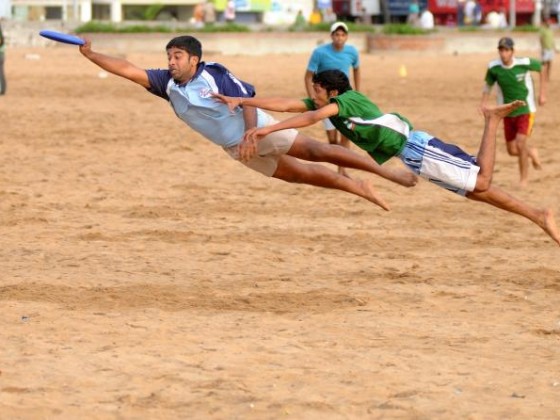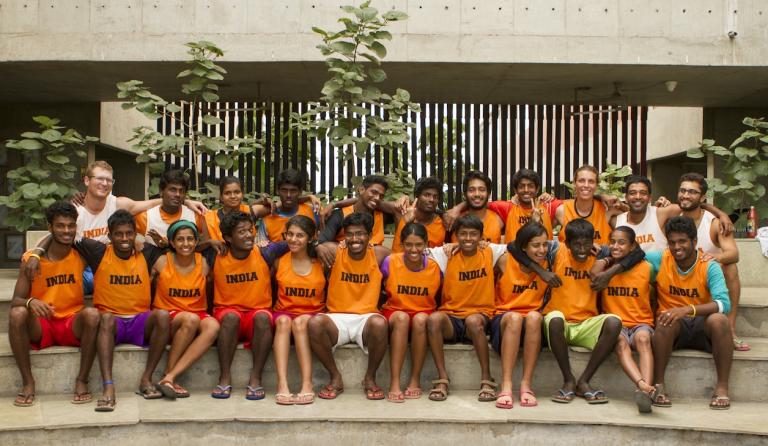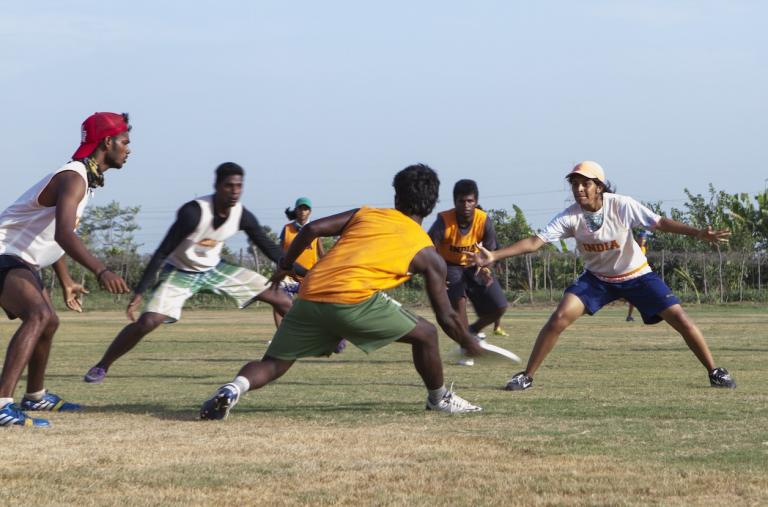CHENNAI, India — Amid the open drains, stinging flies and makeshift roofs, an unlikely game is taking off among impoverished residents of India’s slums:
Ultimate Frisbee.
Chennai, a ramshackle coastal city known for its population of subsistence fishermen, has become India’s hub for the sport, with eight club teams and hundreds of players tossing discs in the city’s dry alleys and public beaches.


